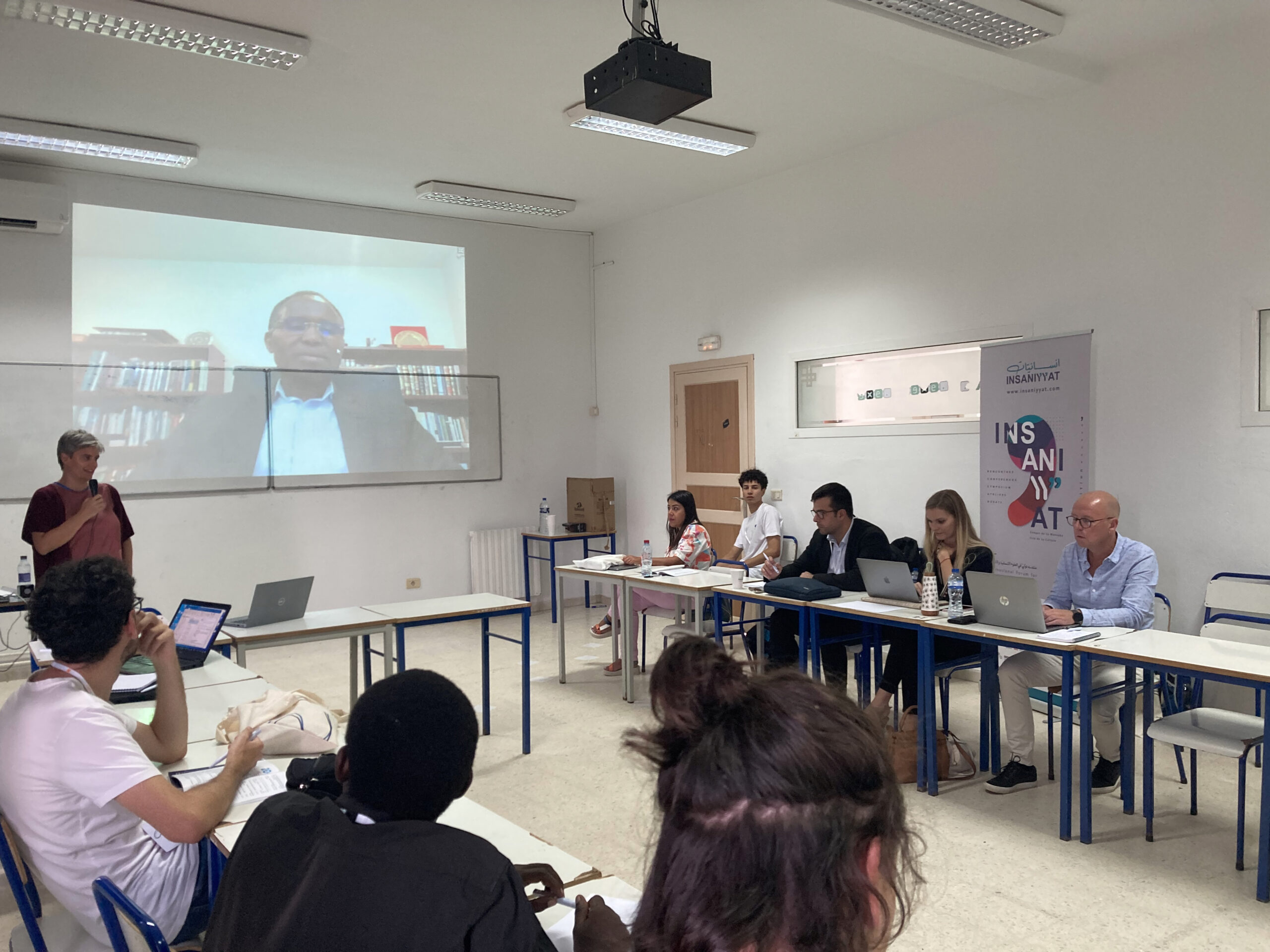Photo: Johanna-Maria Hülzer/Berghof Foundation
On 20-24 September 2022, Insaniyyat – the International Forum for Humanities and Social Sciences – took place in Tunis, Tunisia. Bringing together more than 1300 researchers, academics and artists from 35 countries from the Maghreb, the Middle East, Europe and Africa, its main objectives are to provide a space for conversations between different academic traditions on current research and issues in the humanities and social sciences; to promote exchanges between academics, young researchers and artists from different linguistic spheres and cultures; and to defend the place of the humanities and social sciences in public life.
PREVEX joined forces with sister projects CONNEKT and PAVE in a panel on 20 September, where experts from each of the three projects provided their insights in both Arabic and English. PREVEX was represented by PI and Research Professor Morten Bøås who participated in a panel with the paper Conceptualising enabling environments in the Balkans and the MENA regions: towards a contextual understanding of occurrence and non-occurrence. To ensure context-sensitive approaches in preventing violent extremism, we need to understand the drivers and multipliers of its occurrence and what makes some communities more resilient than others even under exactly the same enabling environment, Bøås argued, assuming that an improved understanding of how different drivers of violent extremism operates can help identify effective prevention strategies.
Other panelists included Juline Beaujouan (University of Edinburgh), Josep García-Coll (University of Cordoba) and Dr. Mohamed Elsanousi (Network for Religious and Traditional Peacemakers).



